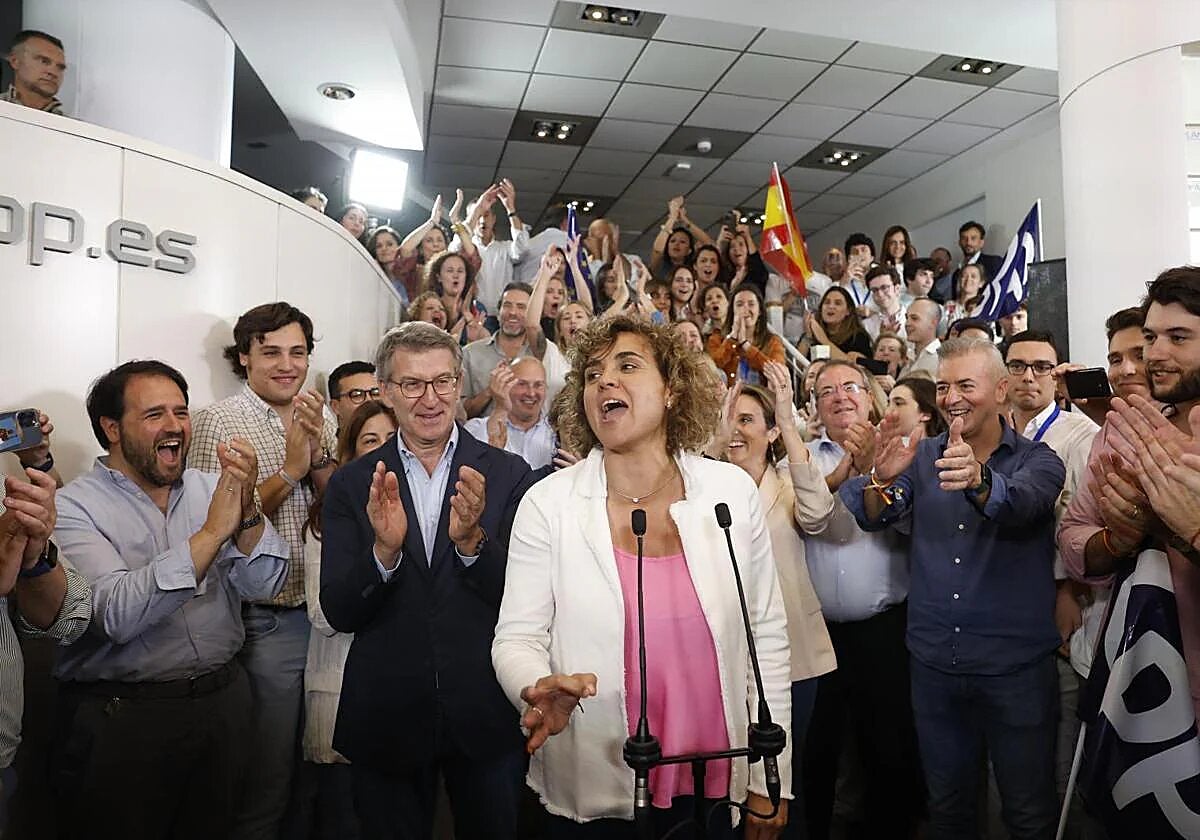European election: Spain's Partido Popular claims narrow victory while Socialists hold on despite prediction of a major fall
The PP, led by Feijóo, has beaten PM Pedro Sánchez's PSOE by just two seats and four percentage points
The conservative Partido Popular achieved a narrow victory in this Sunday's European election, securing 22 seats, an increase of nine.
The socialist PSOE, led by Prime Minister Pedro Sánchez, managed to hold on to 20 of their 21 seats (in fact in the 2019 election they achieved the same result - 20 - but gained their 21st when the UK's seats were shared out after Brexit). The PSOE therefore thwarted the PP's attempts to turn the election into a plebiscite vote in which the electorate had the chance to punish Sánchez's government.
The PP's good results therefore (up 14 percentage points and one and a half million votes) were bittersweet after setting the higher goal of forcing the Socialists out of government.
Meanwhile for the PSOE, the result was a defeat, but less of a defeat than the opposition had hoped for. Their resistance has been at the cost of the far left parties, who make up the PSOE's partners in an increasingly fragile coalition government.
Now divided into Podemos and Sumar, the latter party, led by Spain's current Deputy PM Yolanda Díaz, gained three seats, while Podemos fell from four to two.
The PP has failed to lose an election under the leadership of Feijóo. Since he took over two years ago he has won in terms of number of seats in the municipal, general and now the European elections and has seen his party's results improve in all the regions, but he has not achieved the coup de grâce he hopes to deliver to Sánchez so that he leaves power.
Party spokesperson Cuca Gamarra pointed out on Sunday night that with a smaller distance than the four-point lead that her party has on the Socialists, Sánchez brought forward the general elections after the setback of the municipal elections on 28 May last year.
However in these European elections, the prime minister's setback has been less drastic, as the outlook was much worse prior to the vote.
Comparisons are more difficult this year as the turnout was much lower (49.21%) as the European elections five years ago coincided in Spain with the municipal and several regional ballots.
Disappointment
Sánchez's resilience is thanks to the decline of the majority of his far left partners, starting with Yolanda Díaz's Sumar, which, with three seats, chalks up its fourth electoral disappointment in the past six months. The PP alone has achieved almost the same percentage of the vote as the Socialists and Sumar together, in a European election in which the country has turned to the right in line with the general trend in the European Union.
Hard right Vox went up from four to six seats, although the big surprise of the night was the arrival on the scene of a new hard right group called Se Acabó la Fiesta (The Party's Over) formed by agitator Alvise Pérez, who enter the Strasbourg parliament with three representatives and 4.58% of the vote.
Pérez, a social media content creator, has taken a share of the potential electorate of Vox, which has risen but less than the polls predicted.


-U80264686658Cmg-170x170@Diario%20Sur.jpg)
